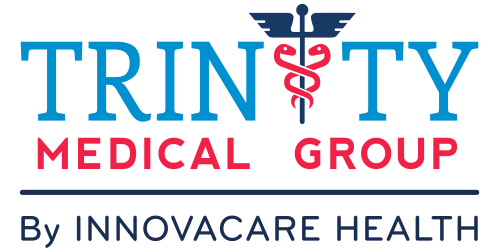Make Menopause Easier With Hormone Replacement Therapy
Women usually suffer from hormonal imbalance during the time of menopause, which results in them experiences several different problems. Hormone replacement therapy is used to balance the hormones in the body.
At Trinity Medical Group, we offer our clients the best treatments by a well-trained and highly experienced medical team. We ensure that each individual is given a specific plan based on their medical needs. Call Trinity Medical Group to schedule your appointment today.
The Meaning of Hormone Replacement Therapy
The level of estrogen and progesterone in a woman often drops when she reaches menopause age. At this time, doctors suggest HRT or Hormone Replacement Therapy. This therapy is also often referred to as menopausal hormone therapy or estrogen replacement therapy. HRT makes use of estrogen along with a combination of progesterone which is given to women during the time of menopause in order to help them cope with menopause better. The body stops producing these two hormones naturally and HRT replaces the lost hormones in the body.
Signs of Low Estrogen Levels
Women may suffer from different symptoms of menopause. These symptoms could occur during the perimenopause time when you will still have your periods or they may start to occur during a later stage of menopause. Some signs include:
• Low fertility
• Dryness of the vaginal area
• Mood swings
• Reduction of breast size
• Difficulty in memorizing things and concentrating
• Hot flashes
• Hair thinning
• Problems with sleep and night sweats
• Irregular periods (perimenopausal symptoms)
Advantage of Hormone Replacement Therapy
There are a number of advantages to using HRT. Some of these advantages are:
• Relief from various symptoms of menopause: Women do not suffer from hot flashes, dryness of the vagina and numerous other symptoms that are commonly associated with menopause.
• Improvement of the functioning of the muscles: Muscle functioning and muscle fiber is said to improve with HRT.
• Reduction in the risk of a heart attack: Those who receive hormonal replacement therapy are less likely to have a heart attack after menopause than those who do not have HRT.
• Protection against brain aneurysms: HRT and oral contraceptives have been found to reduce the risk of a brain aneurysm in women.
• Lowers the risk of mortality in women who are postmenopausal
Kinds of HRT
There are two major kinds of hormone replacement therapy. One includes only estrogen which is given to women who have had a hysterectomy and do not have a uterus. In this case, it is not necessary to supply progesterone to the body. However, in all other cases, a combination of estrogen and progesterone is supplied to the body is a specific ratio. This therapy treats women who still have a uterus. HRT may be given to a woman in the form of estrogen and progesterone cream for the vaginal area, in the form of tablets or in the form of patches for the skin.

 Call Lakeland
Call Lakeland
